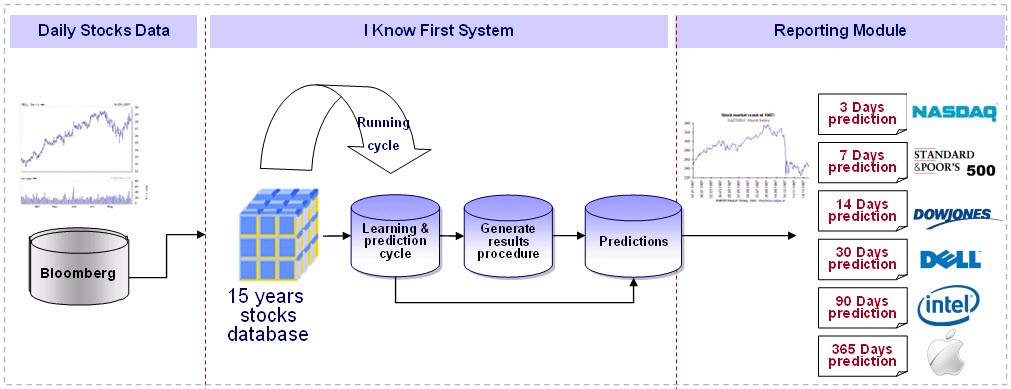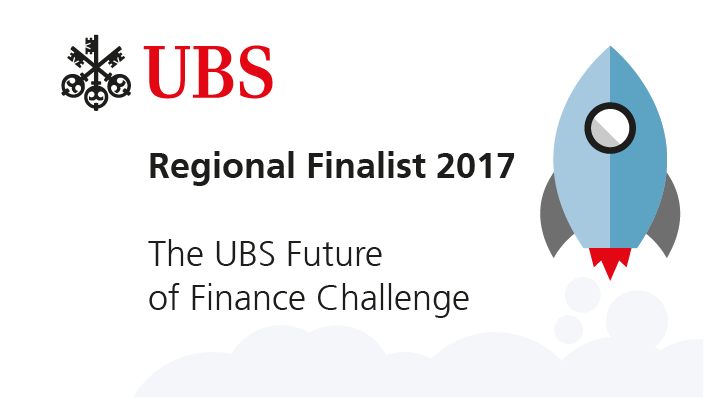Artificial Intelligence Companies: Microsoft Officially Lists Artificial Intelligence as a Top Priority
 The article was written by Moises Meir, a Financial Analyst at I Know First.
The article was written by Moises Meir, a Financial Analyst at I Know First. Artificial Intelligence Companies
Summary
- Microsoft implies on its earnings report that AI is a top priority
- Explaining Microsoft’s business interests in becoming a top player in AI.
- Impact of Artificial Intelligence in the near future.
- I Know First’s application of AI.
And the company has plunked AI into its corporate vision statement, too. The company now files the vision as: “Our strategic vision is to compete and grow by building best-in-class platforms and productivity services for an intelligent cloud and an intelligent edge infused with AI”.
For the sake of comparison, here’s last year’s version: “Our strategic vision is to compete and grow as a productivity and platform company for the mobile-first and cloud-first world.” Those who follow Microsoft’s moves closely, know that “mobile-first, cloud-first” phrase very well. Microsoft’s CEO Satya Nadella had repeatedly stated it since he became the man in charge in 2014.
Unsurprisingly, the days of mobile in Microsoft are over. They could not overcome the struggles that its Windows Phone brought. In addition, Microsoft’s acquisition of Nokia for $7.6 billion has been written off and labeled a failure.
Cloud computing, including fast-growing products like Office 365 and the Azure public cloud are still there. Now AI is up there with it, too. Microsoft has acquired a few AI startups, like Maluuba and Swiftkey, and has established a formal AI and Research group. That team focuses on AI development and other forward-looking research and development efforts spanning infrastructure, services, applications, and search.
Microsoft’s vision reset comes after Sundar Pichai, CEO of Alphabet’s Google, began saying that the world is shifting from being mobile-first to AI-first. Facebook has also invested in both long-term AI research and AI product enhancements alongside Microsoft and Alphabet.
Why are Microsoft and Silicon Valley companies so interested in AI?
There are many reasons for big companies to be so invested in developing Artificial Intelligence. However, the biggest reason is that AI is expected to be the main driver of economic and productivity growth in the next two decades, or more. AI systems have super-human abilities. For example, a task that would take a human 45 minutes would be replaced by an system that can complete the same task in seconds. Giving the human 45 extra minutes to employ in other tasks.
If one takes a look at the macroeconomic picture, the findings are even more incredible. Take for example Tesla (TSLA) and its autonomous driving innovation. The impact of AI would expand beyond the automotive industry. The daily 35 minutes spent driving, would probably be spent surfing the internet, affecting the telecommunications sector and the advertising world as well. Insurance companies would feel the effects too. If autonomous cars show lower crash rates, insurance premiums would decrease and vice versa. The disabled will not need a driver. Military applications are infinite, and so on.
Now that the magnitude of the impact is clear, we can go back to the original question. “Why is Microsoft and other big companies so invested in AI?” The answer is that these companies know that in the near future, most small and midsize companies will start using Artificial Intelligence in their daily processes. Microsoft, Alphabet and all of these huge firms will be competing for market share in the AI-platform industry and they are expected to benefit immensely.
Nevertheless, there are several companies that develop their own AI platform for their own use. A good example is Israeli startup, I Know First, that uses it for market forecasting.
I Know First and AI
Founded in 2011, I Know First was one of the first FinTech companies to implement artificial intelligence with deep learning neural networks with the function of market analysis and forecasting. According to Bank Innovation, I Know First is one of five Israeli start-ups you should be watching. I Know First developed a prediction system that uses artificial neural networks that are self-learning, flexible, and adaptive to the capital markets. The algorithm features a Decision Support System (DSS) to optimize the information produced by the years of data inputted. Each day, as the market changes, the system uses the new data inputs to learn from past data information and adjust the weighting of the hidden nodes to improve its predictive performance.
I Know First’s co-founders Yaron Golgher and Dr. Lipa Roitman came up with the idea to apply Artificial Intelligence and Machine Learning in the algo-trading world. Their company uses predictive algorithms based on artificial intelligence to process years of historical stock market data and develop different investment vehicles. There are two tiers to I Know First’s service. Tier I is a client-based daily support forecast. It provides clients with a heatmap of the top picks for bullish and bearish stocks over various time horizons. Tier II is institution-based. For Tier II, I Know First uses its AI algorithm to structure an investment portfolio.
I Know First uses a state of the art, self-learning AI-based algorithm to forecast and uncover the best investment opportunities. Every day, the algorithm inputs data from 7,000 different financial assets, then the data is analyzed by comparing it to stored data and trends from the last fifteen years. After thousands of relationships and data points are analyzed, the algorithm outputs a prediction for each asset in six timeframes. The form of the prediction is of two numbers that indicate which asset to buy, hold and sell. Then an email with the prediction is sent to all subscribers.

















